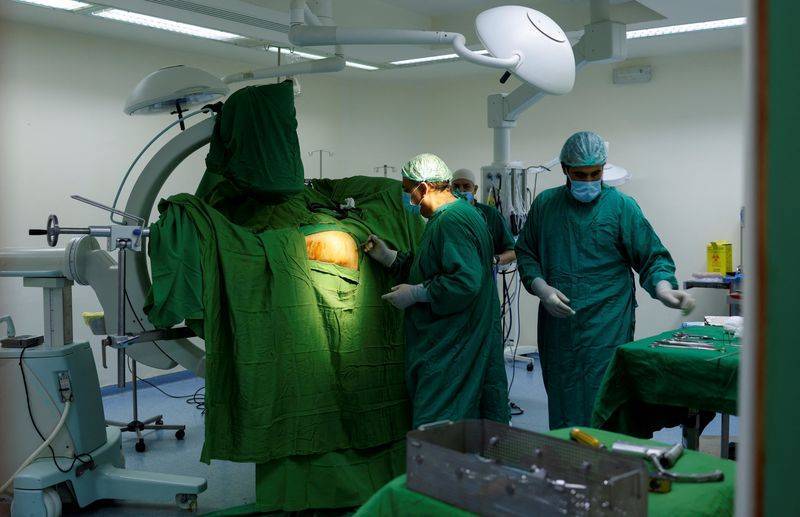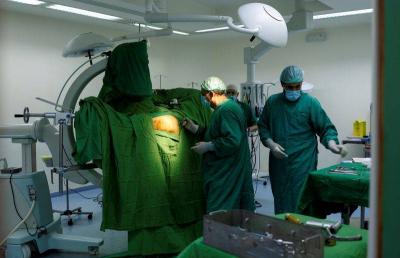From his office overlooking the border with Israel, Dr. Moanes Klakch, the director of Marjeyoun Hospital in southern Lebanon, can hear the sounds of shelling and airstrikes hitting nearby Lebanese towns. The increasing frequency of these attacks has sparked fear among the staff of his small hospital and heightened anxiety. Klakch stated, “So far, we have treated 51 people wounded from the shelling in the past month. Seventeen of them died or arrived dead. We may not be able to handle more cases.”
He added that the hospital serves about 300,000 people in the region. The hospital has 14 emergency beds and struggles to operate due to a shortage of staff and, most importantly, a fuel shortage. The hospital operates on generators for 20 hours a day and must pay up to $20,000 monthly for fuel. Klakch noted, “None of this funding is coming from the government anymore. We rely on the funds available in the hospital from week to week.” If the fuel runs out, the hospital will close. Klakch stated, “We cannot just shut down parts of the hospital.”
Many other public hospitals are also at risk. The economic collapse that Lebanon experienced in 2019 barely allowed adaptation during peacetime. Now, the escalating conflict at the southern border with Israel is pushing the healthcare sector into a new crisis. Doctors are concerned that the recent war in the Middle East could extend beyond the breaking point.
**2006 Invasion**
The hospital located atop the hill in Marjeyoun has experienced some of the worst humanitarian crises. Doctors evacuated patients under bombings during the Israeli invasion in 2006, which killed hundreds. In the 1980s, another Israeli invasion isolated southern Lebanon from the rest of the country. However, this time, Klakch and doctors in other hospitals say they are not equipped to deal with the current levels of violence, let alone another major war.
In recent years, Lebanon has moved from one crisis to another. The financial collapse in 2019 and the horrific Beirut port explosion in 2020 brought Lebanon to the brink. Government funds have run out, thousands of doctors and nurses have left the country, and hospital budgets have declined.
**"We Expect Hospital Strikes"**
Marjeyoun Hospital is no exception. Klakch says many of his staff have left for larger cities or foreign countries. He added, “We had four or five surgeons in 2006 and specialists in orthopedics and gynecology, but now we have one specialist in each field without any replacements.”
The Lebanese Ministry of Health stated that its budget can no longer meet needs. It hastily sent trauma treatment supplies to public hospitals this week in anticipation of the worst. The International Committee of the Red Cross said it had supplied hospitals, including Marjeyoun, with fuel. A surgeon at a private hospital in nearby Nabatieh remarked that emergency aid would only reach this extent if fighting intensifies.
Dr. Moussa Abbas added, “In any hospital in Lebanon, we can accommodate around 40 to 50 cases a week; no hospital in Lebanon is fully equipped.”
**Displacement**
Klakch noted that Lebanese displacement after the financial crisis at least means there are fewer people left to treat. However, an influx of patients could block the narrow passage leading to the shared emergency room and reception area. Klakch had equipped and renovated the hospital in the months leading up to the financial collapse when government funds were available. He purchased dialysis machines and moved the dialysis room to an external building to create more space for treating patients.
Klakch is worried that all of this could vanish in an airstrike and watches in horror the inaction to protect medical staff in Gaza.




